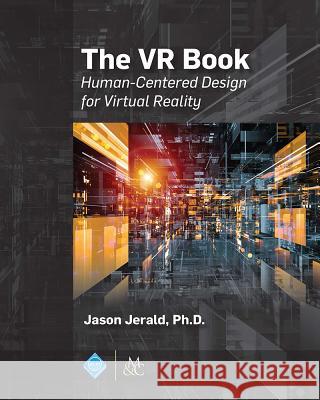The VR Book: Human-Centered Design for Virtual Reality » książka
The VR Book: Human-Centered Design for Virtual Reality
ISBN-13: 9781970001129 / Angielski / Miękka / 2015 / 523 str.
The VR Book: Human-Centered Design for Virtual Reality
ISBN-13: 9781970001129 / Angielski / Miękka / 2015 / 523 str.
(netto: 305,98 VAT: 5%)
Najniższa cena z 30 dni: 320,62
ok. 22 dni roboczych.
Darmowa dostawa!
When virtual reality (VR) is done badly, not only is the system frustrating to use, but it can result in sickness. There are many causes of bad VR; some failures come from the limitations of technology, but many come from a lack of understanding perception, interaction, design principles, and real users. This book discusses these issues by emphasizing the human element of VR.
Virtual reality (VR) can provide our minds with direct access to digital media in a way that seemingly has no limits. However, creating compelling VR experiences is an incredibly complex challenge. When VR is done well, the results are brilliant and pleasurable experiences that go beyond what we can do in the real world. When VR is done badly, not only is the system frustrating to use, but it can result in sickness. There are many causes of bad VR; some failures come from the limitations of technology, but many come from a lack of understanding perception, interaction, design principles, and real users. This book discusses these issues by emphasizing the human element of VR. The fact is, if we do not get the human element correct, then no amount of technology will make VR anything more than an interesting tool confined to research laboratories. Even when VR principles are fully understood, the first implementation is rarely novel and almost never ideal due to the complex nature of VR and the countless possibilities that can be created. The VR principles discussed in this book will enable readers to intelligently experiment with the rules and iteratively design towards innovative experiences.











